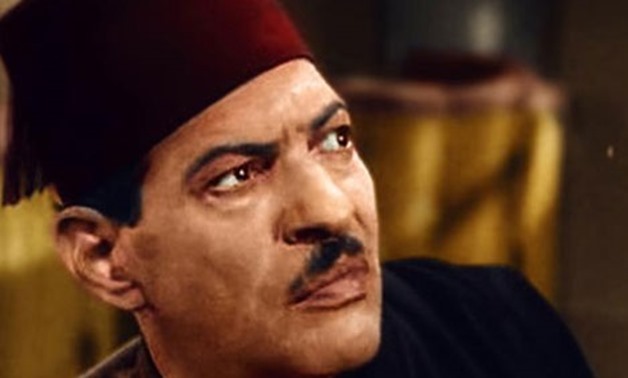
File - Naguib El-Rihani.
CAIRO – 8 June 2019: June 8 marks the 68th death anniversary of the veteran Egyptian actor Naguib El-Rihani. On that occasion Egypt Today presents glimpses from his diaries.
Rihani was an acclaimed theatrical pioneer who enriched the Egyptian theater heritage. He established his own theatrical group in 1910.
He was known for his comedic works in both cinema and theater. Rihani integrated French theater into Egyptian theater through his theatrical troupe.
He was admired and honored by many political and social leaders including Talaat Harb, Saad Zaghlol, Hoda Sha’arawi and Tawfik Nassim.
Many veteran Egyptian comedians were inspired and influenced by Rihani such as the ‘Father of Comedy,’ Fouad Al-Mohandes.
Born in 1889, Rihani was one of the few who refused to drink alcohol during a time when celebrities often relied on alcohol to help calm their nerves and perform on stage, according to Rihani’s diaries, which were published by Dar El-Helal 10 years after his death.
According to some, Rihani’s dedication to sobriety emphasized that his art was “genuine.”
“I don’t feel obliged writing this diary, rather I feel responsible for recording the history of Egyptian art. It will further make me at ease when I spread the truth,” Rihani wrote in his diary.
Rihani was led by his feelings and always believed an original actor should dwell in creativity and respect his/her own art. He was appalled by the statements of some actors and actresses who were enrolled in his group denying his teaching of theatrical arts.
“If anyone of the actors in El-Rihany group had talked honestly about how they learned to stand on stage or had acknowledged the phases they went through before becoming stars, even if it was just to compliment me, that would have been better for precisely recording the history of art in this era instead of denying the truth,” he said in his diaries.
Rihani was so fond of theater that he fell into debt and spent everything he had for good, quality theater. He had such passion for his art that he agreed with all theaters to charge him for the audiences’ tickets.
While known as a prominent comedian, Rihani was more interested in drama than comedy.
His drama works were often inspired by events in his life including his mother’s shame of his acting career and the brother he lost, George El-Rihani. Rihani was forced to leave drama due to his rising debts and audiences who preferred comedy.
He used to integrate patriotism with humor on stage and scorned the British invasion, ongoing at the time. Rihani used the stage to spread awareness to audiences about the demeaning living conditions of Egypt at the time.
Among his list of theater plays were “El Rial” (1917), “El Ashra El Tayba” (“Good Companionship”) (1920) that featured music by Sayed Darwish, “El Geneih El Masry” (“Egyptian Pound”) and “El Dunia Lama Tedhak” (“When Luck Smiles”), among others.
His movies included ‘Yacout’ in 1934, ‘Beslamto Ayez Yetgwz’ (“He wants to get married”) in 1936, “Abou Halmoos” in 1941 and “Si Omar.” Rihani died at age 60 while filming his last movie, “Ghazal Al Banat.”

Comments
Leave a Comment